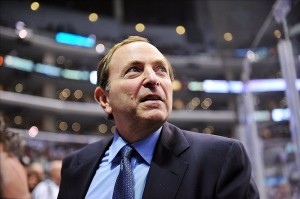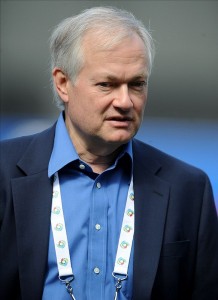
In a PR battle that has seen the public mostly side against the NHL and its owners, the league made quite the leap to get the fans back on their side.
The NHL tabled a proposal to the Players’ Association Tuesday morning that offered a 50/50 split in hockey-related revenue while scheduling an 82-game schedule that would begin on November 2.
The league’s original intention this summer was to redefine hockey-related revenue – that is, how the league’s income is translated before it is divided up between players and owners – so that the owners could report less revenue due to operating costs. This would ultimately give the players less of a percent of the revenue. It is believed that the NHL scrapped this idea in September.
The NHL’s original proposal called for 46% to go to the players while the NHLPA asked for 54% in their original proposal. 50% has been the number that the brass of the media and fans has found to be fair and now it seems that both sides can put this argument to rest.
A full 82-game schedule is something that caters to each side. The owners still get game revenue while the players do not miss out on being paid for the recently canceled first two weeks of the season. This includes a one-week training camp and an extra game being played every five weeks of the season.
Unlike the deal that ended the 2004-05 lockout, the players will not face a salary rollback.
In a media available transcript, NHL Commissioner Gary Bettman stated that he and the owners “believe that this was a fair offer for a long-term deal,” suggesting that the proposal could be longer than six years. He also added that he feels that the length is “what our fans want.”

The one glaring problem that the league likely left out of their offer is an agreement on a league-wide revenue-sharing system. The PA originally proposed the idea this summer, suggesting that revenue made by large market teams would trickle down to the small market teams to make the league more profitable as a whole.
The salary cap ceiling was set at $39 million the year after the 2004-05 lockout. Last season, the salary cap floor was at $48.3 million with a cap of $64.3 million; this has made it difficult for the small market teams to afford free-agent high salary players, while also strapping them in terms of retaining their own talent.
Revenue sharing has not been a well-received by the league. Under the last CBA, the league shared about $150 million but NHLPA Director Donald Fehr offers that the PA’s offer would exceed $250 million shared, annually.
Expect to see this brought up in the PA’s rebuttal.
Bettman stated that there are not any formal talks scheduled, but added that the league will be available to the PA whenever they are ready to respond.